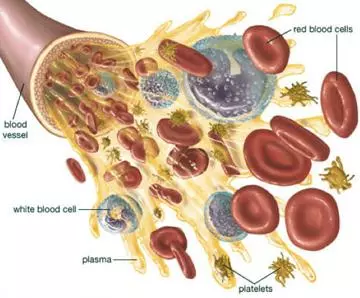Annually, 16,000 new cases of Lupus are reported around the country. While the disease primarily strikes women of childbearing age, it can hit men and teenagers as well, with an age range of 15-45. Research estimates about 1.5 million people in the US are living with the disease.
Understanding Lupus Disease
Lupus is a chronic autoimmune disease. (Chronic, meaning a disease lasting longer than six weeks.) Ordinarily, the immune system protects from germs, bacteria, and viruses by producing antibodies. With an autoimmune condition, the body cannot tell the difference between these unwelcome invaders and healthy tissues, so the immune system starts producing antibodies that attack healthy tissue. This triggers a variety of symptoms including pain, inflammation, and tissue damage (involving the scalp and hair follicles). It’s important to note that Lupus is not contagious, and is not related to the autoimmune diseases HIV and AIDS, nor is it a type of cancer.
Annually, 16,000 new cases of Lupus are reported around the country. While the disease primarily strikes women of childbearing age, it can hit men and teenagers as well, with an age range of 15-45. Research estimates about 1.5 million people in the US are living with the disease.
Types of Lupus
Systemic Lupus Erythematosus (SLE)
The most common form of lupus which affects multiple organs in the body. It’s what most people mean when they refer to “lupus.” Systemic lupus can be mild or severe.
Subacute Cutaneous Erythematosus
This form of lupus is limited to the skin. Although cutaneous lupus can cause many types of rashes and lesions (sores), the most common—called discoid rash—is raised, scaly and red, but not itchy. Areas of rash appear like disks, or circles.
Drug-induced Lupus
A lupus-like disease caused by certain prescription drugs. The symptoms of drug-induced lupus are similar to those of systemic lupus, but it rarely affects major organs.
Diagnosis
Lupus can cause the scalp hair to become fragile and break off at the hairline, which can cause a somewhat ragged and irregular condition known as “Lupus hair.” This type of hair loss can be an early symptom of Lupus if the disease hasn’t already been diagnosed. However, Lupus can be difficult to diagnose because its signs and symptoms often mimic those of other ailments.
Symptoms, aside from hair loss include:
- Fever and fatigue
- Joint pain, stiffness, and swelling
- Butterfly-shaped rash on the face extending from the cheeks to the bridge of the nose
- Skin lesions which worsen with exposure to the sun
- Fingers and toes turn white or blue when cold or under stress
- Breathing Difficulty
- Chest pain
- Dry eyes
- Memory loss, headaches, or confusion
Lupus Hair Loss Characteristics
Aside from “Lupus hair,” there are different hair loss characteristics associated with specific types of Lupus:
Systemic lupus erythematosus (SLE)
The immune system can actually destroy hair follicles which can cause the hair on the scalp to gradually thin out. Hair might become thinner all over, fall out in clumps, or in some cases, hair is lost from eyebrows and eyelashes, or elsewhere on the body.
Subacute Cutaneous Erythematosus or Skin Lupus
Rashes on the skin can cause the hair to fall out. If the hair loss is not treated aggressively the disease can sometimes cause round, thick, scaly lesions on the scalp called “discoids” or Discoid Lupus Erythematosus. In these cases, the discoids cause scar tissue to form on the hair follicles, which can lead to permanent hair loss. Early and aggressive treatment of hair loss in patients with Discoid Lupus Erythematosus can often lead to some degree of hair regrowth.

Seeking Medical Help
The sudden onset of hair loss can be a symptom of many medical conditions, and Lupus effects can range from mild to life-threatening, so it is essential to seek appropriate medical care. Lupus symptoms can sometimes last for years, but under the supervision of a qualified doctor, most people with Lupus can still live a happy, fulfilling life. No two Lupus cases will be identical, but Dr. Gray has the experience and innovative surgical and therapeutic expertise to provide a treatment suited solely to the needs of each patient dealing with hair loss.
A Full Range of Hair Restoration Options
As Dr. Gray’s practice evolved, he expanded treatment beyond surgical restoration to offer a comprehensive range of the latest innovations in emerging hair restoration therapies for those who need them. Methods such as Laser Hair Therapy, and Minoxidil are resources for those who don’t require hair restoration surgery. Dr. Gray has partnered with Cesare Regazzi to offer custom hair prosthesis systems for those who are not a candidate for hair transplant surgery, making HT&RC the only resource in Georgia for the revolutionary CNC hair replacement systems, well as all other surgical and non-surgical treatments.
If you're looking to resolve hair loss issues related to Lupus or any other condition please don't hesitate to contact us for a consultation.






